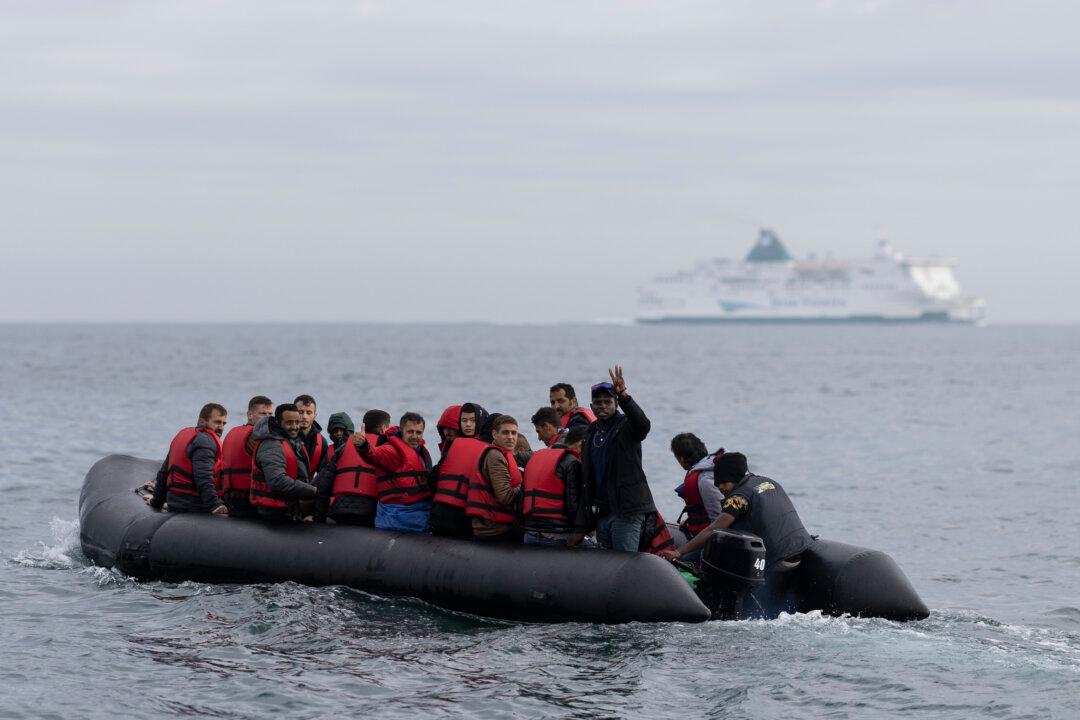Ninety illegal immigrants arrived in the UK after crossing the English Channel in two small boats on Christmas Day, the UK’s Ministry of Defence has said.
They were the first crossings recorded since Dec. 21. So far, the provisional total for illegal immigrants making the dangerous journey across the Channel this year has reached 45,756, including about 15,000 who are believed to have come from Albania.





